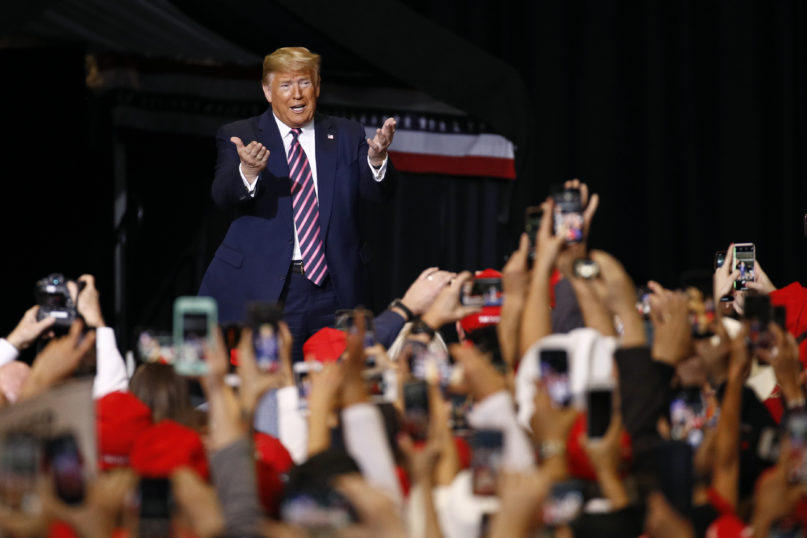(RNS) — Again and again, from late January through mid-March, President Trump called the coronavirus no big deal.
“We have it totally under control,” he said. “We pretty much shut it down.” “You know in April, supposedly, it dies.” “People are getting better, they’re all getting better.” “The 15 is going to be down close to zero.” “It’s like a miracle. It will disappear and you’ll be fine.” “It’s really working out.”
Around the presidential bully pulpit, Trump’s acolytes on Fox News turned the volume up to 11. Who can forget Trish Regan’s possibly career-ending claim that the virus was a Democratic scam designed “to demonize and destroy the president”? Small wonder his evangelical base took it all as gospel.
So when reality hit, then what? According to the latest Pew survey, nearly two-thirds of white evangelicals believe that Trump “has accurately assessed the coronavirus risks.” How can that be?
The answer may be found in “When Prophecy Fails,” the classic account of true believers who refuse to give up their beliefs even when faced with definitive proof to the contrary. Seven decades ago, social psychologists Leon Festinger, Henry Riecken and Stanley Schachter discovered a small cult called the Seekers who believed that a flying saucer would rescue them from a gigantic flood that would destroy the Earth on December 21, 1954.
Figuring that the flying saucer would not show up and the flood would not happen, the three infiltrated the group in order to see how its cognitive dissonance would be resolved. Sure enough, the appointed day arrived and the Earth was not destroyed. But rather than accepting empirical disconfirmation, the Seekers invented a new story that enabled them to keep their faith.
The study, which achieved immediate fame, provided a social scientific explanation for the persistence of apocalyptic groups like the Seventh-Day Adventists, heirs of the followers of William Miller, who prophesied that Jesus would return in 1844; and the Jehovah’s Witnesses, heirs of the followers of Charles Taze Russell, who prophesied that God’s kingdom on earth would be fully established in 1914.
What gave “When Prophecy Fails” its impact, however, was not major public interest in religious apocalypticism but, rather, its demonstration of the limits of empiricism as a mode of persuasion. The book might have been titled “Why Evidence Fails.” Groups with powerful convictions won’t abandon their commitments just because the empirical evidence says them nay.
What turned Millerites into Adventists and kept Witnesses witnessing was no admission of failure but merely a sufficient adjustment of their teachings — in both cases an adjustment that turned the originally predicted date for the transformation of the world into a date signaling only the beginning of the End Times.
So Trump’s base is comforted with the pretense that their prophet was never mistaken but, on the contrary, had been on top of the situation all along: “This is a pandemic. I’ve felt it was a pandemic long before it was called a pandemic.” Not that there was any abandonment of the saved kingdom scenario: “We’re doing great. Our country is doing so great.”
To be sure, a large number of Millerites abandoned the faith because of what they called The Great Disappointment. Many Jehovah’s Witnesses also fell away after 1914 failed to usher in God’s kingdom. Come November 3, we’ll learn how many of the Trumpian faithful do likewise.






